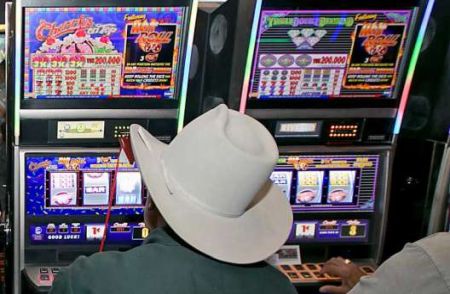AUSTIN, Texas (Texas Insider Report) — Texas, one of the most conservative states in the nation, is currently witnessing a multi-million dollar lobbying blitz to pass legislation legalizing gambling expansion across the state. Pressured by the Las Vegas Sands and other gambling industry companies in the State Capitol of Austin, backers want access to the engine that's driving the now-9th largest economy in the world – Texas' Citizens.
Willing to spend millions of dollars to accompish that goal, the gambling industry's advocates recently launched a series of targeted TV & Radio ads in some of Texas' largest metropolitan cities (Austin, Dallas, Houston & San Antonio,) to push for expansion of legalized gambling. The ads emphasized the billions of dollars in "benefits" Texas is "losing" to neighboring states.
 But the big, and often-neglected question rests on whether Texas Legislators understand the attendant "costs" that come with gambling – and the familiar argument that there's potential for tourism and growth and jobs around the bend.
But the big, and often-neglected question rests on whether Texas Legislators understand the attendant "costs" that come with gambling – and the familiar argument that there's potential for tourism and growth and jobs around the bend.Lt. Gov. Dan Patrick (right,) may have been alluding to such costs recently as he visited with Lubbock's Chad Hasty Radio Program, saying:
"It’s not even an issue that’s going to see the light of day in this session.”
Las Vegas Sands Vice President Andy Abboud, however, sounded slightly more optimistic about expansion's possibilities when he recently asked NetNewsLedger.com the questions:
“Does it happen this Legislative Session? We will see.
"Does it happen in the near future? It is inevitable.”
"Does it happen in the near future? It is inevitable.”
Texas' neighboring states of Louisiana and Oklahoma, meanwhile, were recently given the distinction of having earned the #5 and # 6 Rankings, respectively, in WalletHub's list of "Most Gambling Addicted States."
Most Gambling Addicted States:
- Nevada
- Mississippi
- Montana
- South Dakota
- Louisiana
- Oklahoma
 Digging deeper into the "How High Does Louisiana Rank in States with Most Gambling Addicts" Analysis, the state ranked:
Digging deeper into the "How High Does Louisiana Rank in States with Most Gambling Addicts" Analysis, the state ranked:- 3rd for Gambling-Related Arrests per Capita
- 4th for Commercial Casinos Revenues per Capita, and
- 9th for “Gamblers Anonymous” Meetings per Capita
When the business or pleasure gets out of control, however, gambling becomes a real medical condition.
"Gambling Disorder," as it’s known, affects about 1-3% of all U.S. Adults – but it may be on the rise due to increased isolated time spent gambling online during the COVID-19 Pandemic.
According to the Mayo Clinic, “Gambling can stimulate the brain's reward system much like drugs such as alcohol can, leading to addiction.”
That addiction can lead to serious economic consequences. For example:
- U.S. Consumers experience over $100 billion per year in total gambling losses
- Individually, a male gambling addict accumulates an average debt of between $55,000 and $90,000,
- whereas a female averages $15,000
- Most cannot afford to pay back what they owe
- As a result, gambling addicts develop a high tendency to:
- Amass even more debt,
- Suffer from other Health Issues,
- Lose their Jobs,
- Strain their Family & Friend Relationships, or
- even Commit Crimes.
Gambling addiction is challenging and difficult to spot because there are no real tell-tale signs that are easily recognizable, as is often the case with alcohol or drug abuse. Gambling addiction can be subtle and occur over time. When individuals transition from casual participation to increased frequency and level of wagering, this is when the addiction should become a concern.
 One good indicator of trouble, however, is if someone becomes more restrictive regarding how much information they share about their finances and/or gambling with family members.
One good indicator of trouble, however, is if someone becomes more restrictive regarding how much information they share about their finances and/or gambling with family members.Since the mid-1990s, gambling lobbyists have spent millions of dollars trying to derail or soften the American Psychiatric Association's (APA) "gambling addiction" definition, hoping to transition that phrase to "gambling disorder." While gambling lobbyists have had some successes in confusing the issues and terminologies, the APA has done well in defining "gambling addiction" in its authoritative Diagnostic & Statistical Manual of Mental Disorders (DSM-5).
While the level of resources for those suffering from gambling problems differ from state to state, they are costly – and often struggle to change the behavior of the gambling addict. As with other addictive behaviors, professional counsellors most aften advise family and friends of problem or addicted gamblers to never give money or resources to the gambler, and to cut off the gambler from all credit card access, bank accounts, and other monetary sources.
As a conservative state, the difficulty of passing legislation for gambling expansion in Texas is to be expected – and faces an uphill battle.
What is certain, however, is that regardless of the conservative Texas Legislature's actions during the 2021 Session, the Las Vegas Sands and other industry advocates are in it for the long haul.
























